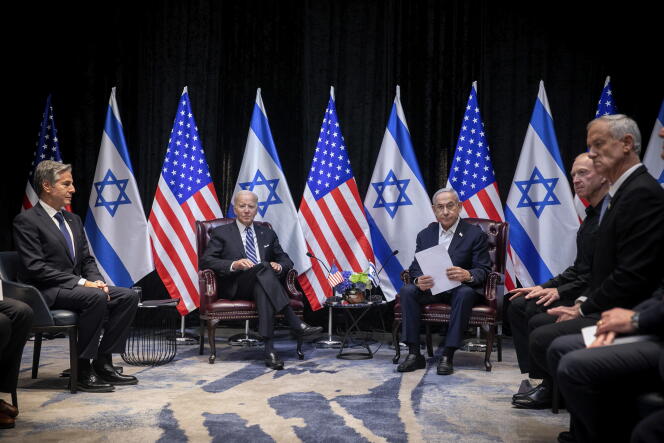


Who will manage Gaza, its ruins, its mourning and distressed population, when the guns fall silent? Thinking about the "day after" during a time of war is an exercise that is both futile and essential. It is difficult to plan for reconstruction when the scale of the destruction is not yet definitive. It is difficult to talk about the governance of the post-Hamas territory, knowing that wiping out the Islamist movement, which is Israel's objective, appears complicated because of its shifting and multi-faceted nature. Nevertheless, this debate is underway, mainly involving the United States and Arab countries. For the moment, it is a vague process. Europe, meanwhile, is not playing any significant role.
The question of the day after was at the heart of the meetings held by US Secretary of State Antony Blinken in the Middle East on November 4 and 5. His Arab counterparts, like the Egyptian foreign minister, Sameh Shoukry, considered this reflection "premature." In their view, the priority remains not a simple "humanitarian pause," as suggested by Washington, but a ceasefire in Gaza – where Israeli bombings have killed more than 10,000 people according to the Hamas-administered Ministry of Health and "thousands" according to a November 6 Pentagon statement. They suspect that the Americans are talking about the long term in order to gain time and let Israel complete its military operation. For seasoned diplomats in the region, the debate about what comes next also brings back bad memories: the dozens of proposals devised for Syria, which failed to produce any political or even security solution in 12 years of civil war.
For the time being, Israel remains focused on the military operation. Benjamin Netanyahu knows that his own fate hangs on this war. The Israeli prime minister refuses to sketch out the future and is seeking to avoid alienating the firebrand far right to which he has tied his fate. "For the moment, we can't define either the contours of a military victory or the aftermath," acknowledged a senior Israeli official. "That's what's bothering the United States."
Asked by the American TV channel ABC on November 7 who should govern the enclave, Netanyahu sidestepped the question: "Those who don't want to continue the way of Hamas," he simply replied, before adding: "I think Israel will, for an indefinite period, have the overall security responsibility [in Gaza] because we've seen what happens when we don't have it." The Israeli leader did not announce the recolonization of Gaza, which his allies on the extreme religious right have been dreaming of since 2005. But he refused to put a time limit on the military campaign.
You have 70% of this article left to read. The rest is for subscribers only.
